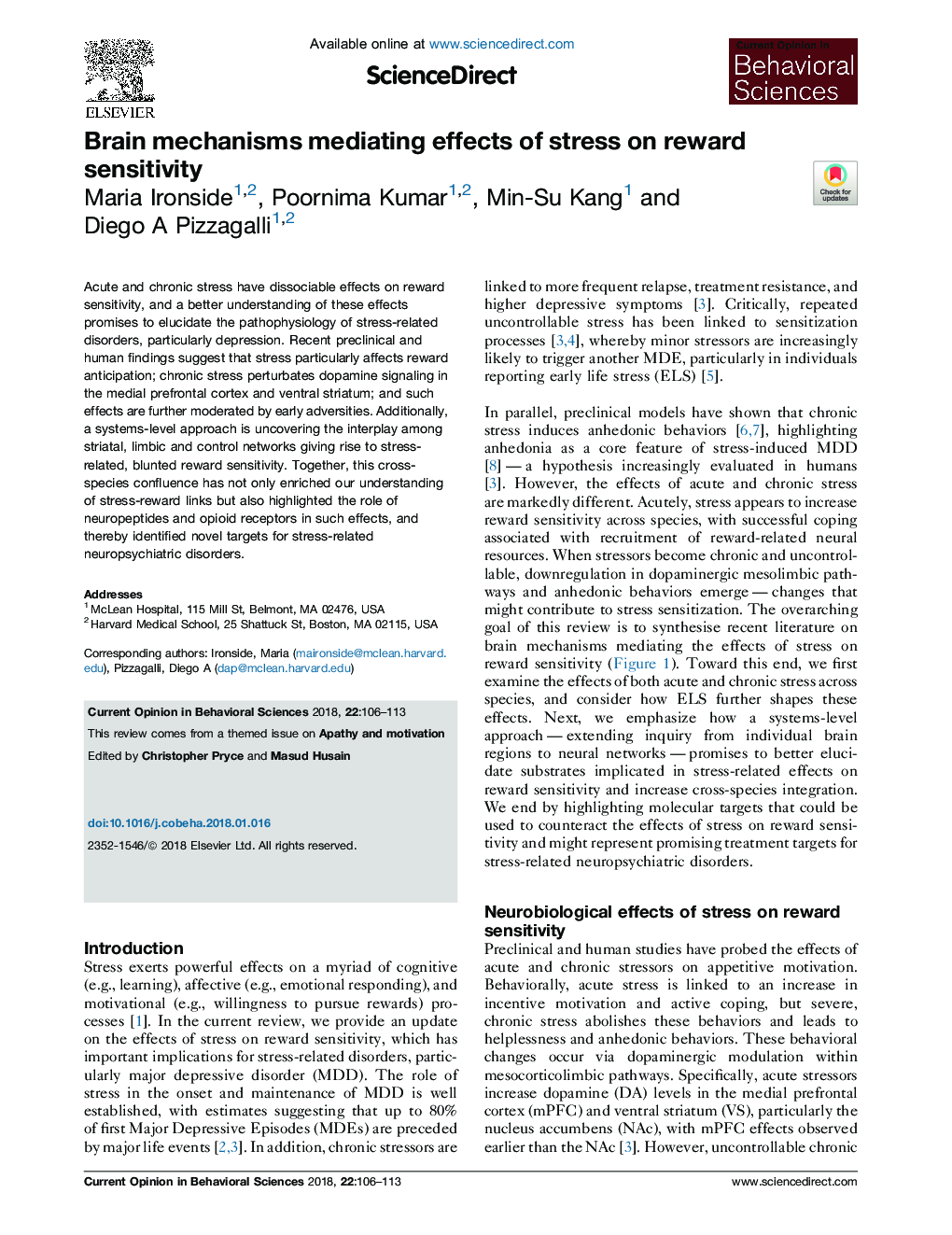| Article ID | Journal | Published Year | Pages | File Type |
|---|---|---|---|---|
| 8838098 | Current Opinion in Behavioral Sciences | 2018 | 8 Pages |
Abstract
Acute and chronic stress have dissociable effects on reward sensitivity, and a better understanding of these effects promises to elucidate the pathophysiology of stress-related disorders, particularly depression. Recent preclinical and human findings suggest that stress particularly affects reward anticipation; chronic stress perturbates dopamine signaling in the medial prefrontal cortex and ventral striatum; and such effects are further moderated by early adversities. Additionally, a systems-level approach is uncovering the interplay among striatal, limbic and control networks giving rise to stress-related, blunted reward sensitivity. Together, this cross-species confluence has not only enriched our understanding of stress-reward links but also highlighted the role of neuropeptides and opioid receptors in such effects, and thereby identified novel targets for stress-related neuropsychiatric disorders.
Related Topics
Life Sciences
Neuroscience
Behavioral Neuroscience
Authors
Maria Ironside, Poornima Kumar, Min-Su Kang, Diego A Pizzagalli,
